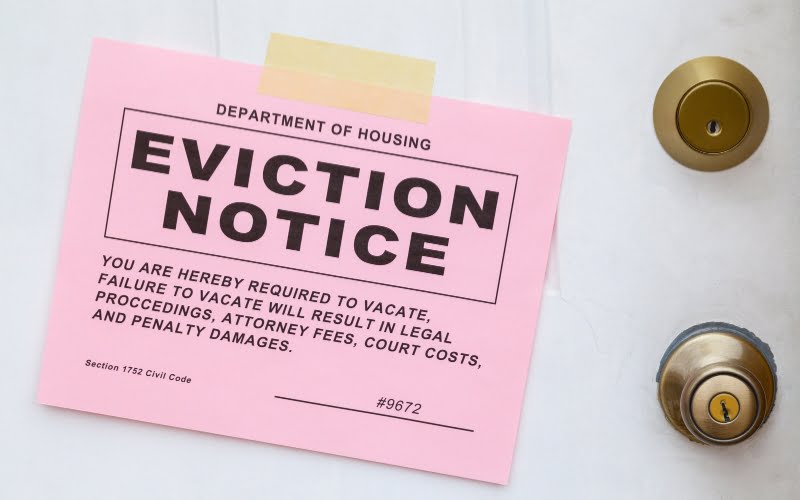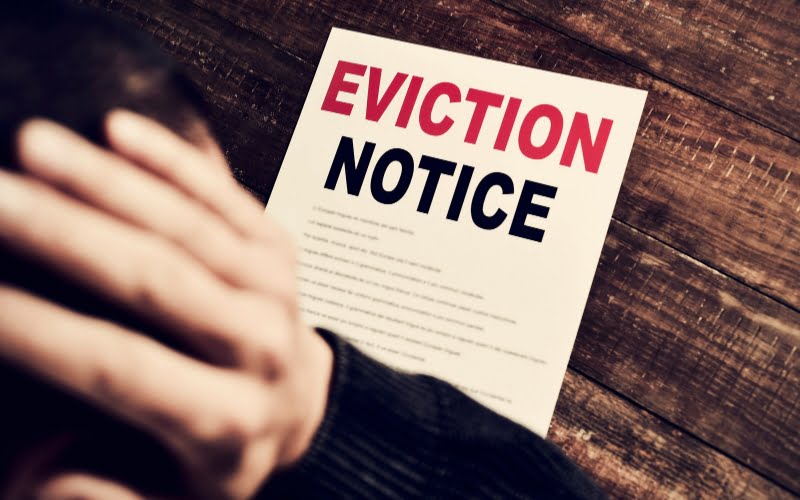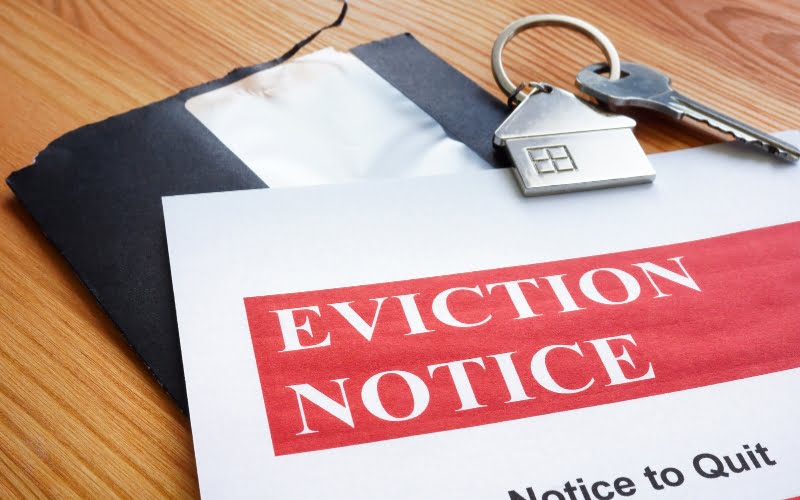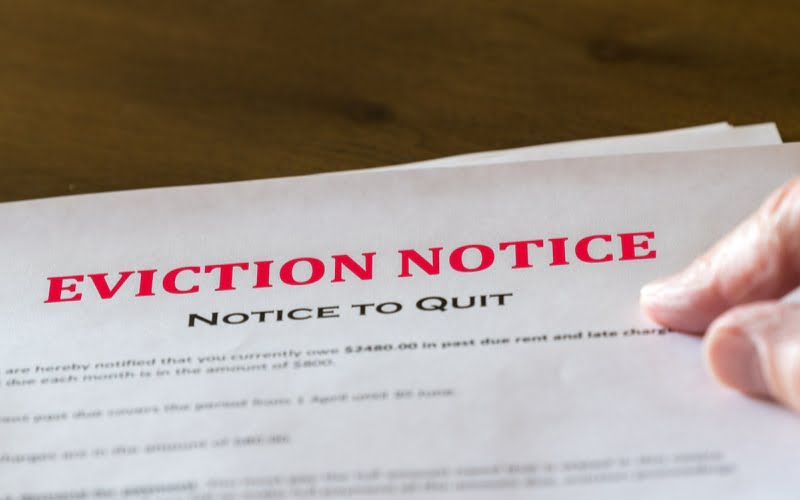Last Updated on March 18, 2024 by Kelvin Nielsen
Arizona law requires that landlords serve the 30 day eviction notice to tenants who either have no lease or are on a month-to-month lease. Read on to know how to go about the process for a successful eviction.
To evict a tenant in Arizona, you must have a legal reason to do so. You cannot just wake up one day and decide to remove the tenant just because you no longer like them. What’s more, retaliatory, discriminatory, and self-help evictions are illegal as well.
All evictions in Arizona follow the same process. The following is a basic overview of the process.
- Have a legal justification to evict the tenant. Examples include nonpayment of rent, no lease, habitability violations, and illegal activity.
- Serve the tenant with the appropriate eviction notice.
- File a lawsuit in either a Justice or Superior Court depending on the size of the lawsuit.
- Give the tenant time to respond.
- Attend the court hearing and wait for the judgment.
- Obtain a court order (Writ of Restitution) if the judgment is in your favor.
With all this in mind, here is everything you need to know about the 30 day eviction notice in Arizona.
30 Day Eviction Notice
The 30 day eviction notice applies in the following two scenarios.
- Where the tenant has no lease. This could apply in a situation where you’re looking to evict a family member, for instance.
- Where you no longer want to continue renting to a tenant who is on a month-to-month lease.
In these situations, you must serve the tenant with a 30 Day Notice to Vacate. This will give the tenant 30 calendar days to leave. Unlike some other notices, the notice doesn’t give the tenant an opportunity to ‘cure’ the violation. The only option they have is to leave within the notice period.
If the tenant fails to leave, then you must take the following steps to regain possession of the property back.
30 Day Eviction Notice – What should you do if the tenant refuses to leave?
The following is the step-by-step process to take when the tenant doesn’t leave after the 30 calendar days are over.
Step #1: File a complaint in a Justice Court.
After the 30 days are over, you can escalate the matter further by filing the lawsuit in a Justice Court.
You’ll need to submit two documents for the notarization to be successful: a Complaint Form and a Summons Form.
Step #2: The tenant is served.
After your lawsuit has been notarized by the court’s clerk, copies of the Summons and Complaint will be issued. These will then need to be served to the tenant using a process server.
The process server, typically a sheriff or a constable, will need to serve the documents in a particular manner. The following are the options.
- Serve a copy in person.
- Leave a copy with someone who is of suitable age and lives together with the tenant.
- Deliver a copy to the tenant’s attorney, or any other agent authorized to act on their behalf.
You can generally expect the court hearing to be held no later than 5 days after filing the complaint.
Step #3: The tenant files an answer.
Arizona tenants have a right to respond to their landlord’s allegations. The tenant must submit the answer on or before the initial appearance.
The tenant can choose to fight or admit the landlord’s allegations are true. If the tenant chooses to fight their eviction, the following are some of the defenses they can give.
- The eviction notice you served them had critical errors. For instance, it failed to mention the effective date of eviction.
- The eviction notice was served irregularly.
- There was a lease between you and the tenant.
- You accepted a rent payment.
Step #4: Hearing is held.
Once the complaint is successfully filed, you can expect the hearing to take place within 5 days. Both parties have the option to make the initial appearance via phone or video conference.
The judge can rule in your favor if any of the following happens.
- There is no lease between you and the tenant.
- The tenant fails to show up.
- The tenant fails to convince the court by not having a valid defense.
- The judgment falls in your favor after all parties have submitted their case.
If the judgment is in your favor, the court will issue you with a Writ of Restitution. This will give the tenant 5 calendar days to move out after the judgment is entered. If they refuse to leave, the sheriff will have to evict them forcefully. The only exception here is if the tenant files an appeal which will delay their eviction.
Frequently Asked Questions (FAQs): 30 Day Eviction Notice
Q: Can a landlord evict someone immediately in Arizona?
A: Yes. A landlord can evict a tenant immediately for illegal activities committed at the property. Here is a guide to get you started.
Q: What is a 5 day notice to vacate AZ?
A: This is a type of eviction notice that a landlord must serve when evicting a tenant for nonpayment of rent. It gives the tenant 5 calendar days to either pay the rent due or vacate the premises within 5 days. If the tenant doesn’t pay the rent or move out within the stipulated time, the landlord can continue the eviction by filing a lawsuit in court.
Q: How do I evict a tenant without a lease in Arizona?
A: To evict someone without a lease in Arizona, you must serve them a 30 Day Notice to Vacate. This will give the tenant a maximum of 30 calendar days to vacate the property. Again, if they don’t, you can move to court and file an eviction lawsuit.
Q: What makes someone a tenant in Arizona?
A: In Arizona, someone is considered a tenant when either of three things has occurred. That is, there is a written- or oral agreement, or the landlord has accepted a rent payment in exchange for allowing the tenant to live on the property.
Conclusion
To evict a tenant from your Arizona property, you must first have a just cause and serve them the appropriate eviction notice. The 30 day eviction notice serves to evict tenants who don’t have a lease or who are paying rent on a month-to-month basis.
Disclosure: The content herein isn’t a substitute for advice from a professional attorney. It’s only meant to serve educational purposes. If you have a specific question, kindly seek expert attorney services.
Sources: https://www.nolo.com/legal-encyclopedia/the-eviction-process-arizona-rules-landlords-property-managers.html, https://www.azleg.gov/ars/33/01375.htm, https://www.azcourts.gov/selfservicecenter/Landlord-Tenant-Disputes-Eviction-Actions/Forms-and-Notices,

Hi, I’m Kelvin Nielsen, an experienced landlord and accomplished real estate lawyer. My focus is on answering your questions about renting in the hopes of making your life as a renter or a landlord a bit easier.







